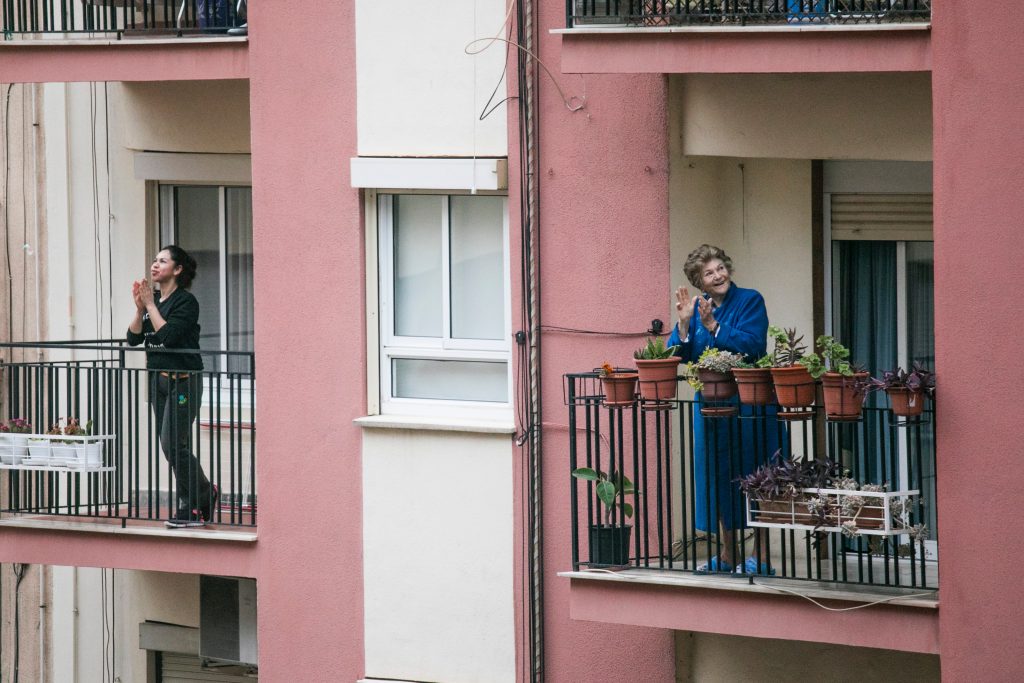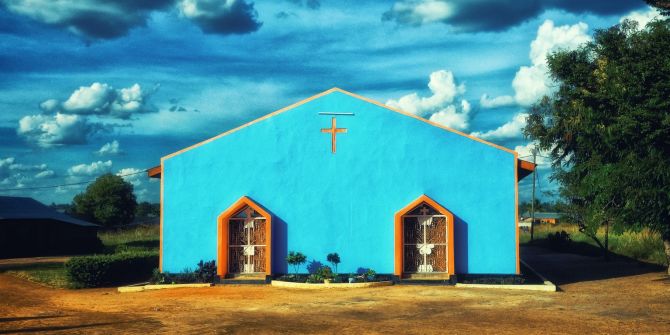The increasing pace of COVID-19 vaccinations across the globe provides hope for a return to some form of normalcy. As we begin to reflect on the past year and envision a post-pandemic future, we are reminded of our interconnectedness and the sacrifices of our essential workers. In this post, Father Ryan Service explores the role of ‘social poets’ in the Catholic Church and how they can help us understand the global pandemic and envision a better future.

Responding to Covid-19 we have witnessed the (re)emergence of nurses, doctors, care workers, postal workers, delivery drivers, shelf stackers, refuse collectors, checkout assistants, and many others in the cultural sphere and popular imagination. The fact is that they were always there, but often unacknowledged. Pope Francis draws attention to them as a current example of “social poets” – a term he adopts for people operating within “forgotten peripheries” trying to “create admirable solutions for the most pressing problems”.
In a powerful article Chris Fitzpatrick, a consultant obstetrician and gynaecologist, muses how in “time, we will need poets and writers of the imagination to look through the looking glass – and tell us the stories of this strange, upside-down world. We will need more than a vaccine and a rebooted economy to heal us”. Fitzpatrick is right. It is premature to tell our stories at this time marked by sickness and restrictions. A tale of loss and confusion continues to unfold so speaking of poets and the imagination sits uncomfortably next to the isolated bedside of the dying. Yet, Fitzpatrick is also right that we will need more than the essential vaccinations and economic stability to make sense of what we are undergoing and to look forward to future possibilities.
This is the work of social poets who, as Pope Francis says, “create in their daily lives…fragments of other possible worlds that fight to survive the darkness of exclusion”. Historically, social poets have belonged to popular movements whereby citizens organise in response to hidden forms of poverty that fall beneath the radar of state intervention or charitable outreach. Social poets’ concerns are epitomised alliteratively by the Pope with his three T’s, “Trabajo (work), Techo (housing), and Tierra (land and food)”.
As the world has been stunned by Covid-19, Pope Francis has broadened his understanding of social poets to include all those whose effort contributes to a new humanism, acting as an “antidote to populism and political showmanship”. Social poets in this new era include all who seek to overcome forms of exclusion while sustaining a vision for a different future. This is where imagination plays its part in seeing the world not in terms of problems to be resolved, but in relation to human activity and potential.
Out of the margins
Since 2014 the Vatican has developed the World Meeting of Popular Movements, which now contends with the global pandemic. These meetings have a practical purpose: to promote dialogue between Christian authorities and grassroots organisations.
In one way, it is a meeting of opposites, whereby representatives within a centralised and hierarchical structure engage with activists on the ground. In another way, it is a radical act of bringing ‘into the centre’ popular movements in order that their vision, values, and work become (in)formative of wider societal policy and practice. Insights from these popular movements are not only significant for Christian and other religious communities, but the voluntary sector as a whole. As Pope Francis put it in his most recent letter to Popular Movements in April 2020: “If the struggle against Covid-19 is a war, then you are truly an invisible army, fighting in the most dangerous trenches; an army whose only weapons are solidarity, hope, and community spirit, all revitalizing at a time when no one can save themselves alone”.
Social Poets upsetting the existing order
Working among the masses, these social poets might sound like an echo of a long history of struggle or class warfare. While social class is still, tragically, a determining factor in human development and needs redressing structurally, the popular movements Pope Francis appeals to are, according to Italian philosopher Vincenzo Rosito, “not specific to a certain economic class, they are not only associations of producers and exporters, but also carriers of practical knowledge in need of recognition and protection”.
Such “practical knowledge” is an important part of the definition of social poets. There is skill in navigating the existing form, be that economic, political, social, cultural, ecological while being able to hold authorities to account. For instance, a practical question Pope Francis poses in his address to social poets is whether this pandemic presents an opportune moment to “consider a universal basic wage which would acknowledge and dignify the noble, essential tasks you carry out”.
Rosito, author of Poeti Sociali (Social Poets, 2019), details how social poets are, ultimately, called to “upset the order of the ‘già detto’ (already said and done)”. Considering a universal basic wage is an example of this capacity to conceive of practices that are not limited by time and space as defined solely by financial-economic market demands. After all, is it not the most marginalised that have been forced to think imaginatively (poetically) to survive?
What about us?
The Pope is clear in that same letter to popular movements that “‘life after the pandemic’” is already being dreamed by social poets who have the “culture, the method, and most of all, the wisdom that are kneaded with the leaven of feeling the suffering of others as your own”. Whether we consider ourselves social poets or not, surely we are all beginning to envision a world that is changed for the better as we move forwards in the fight against Covid-19.
Note: This piece gives the views of the author, and not the position of the LSE Religion and Global Society blog, nor of the London School of Economics.





